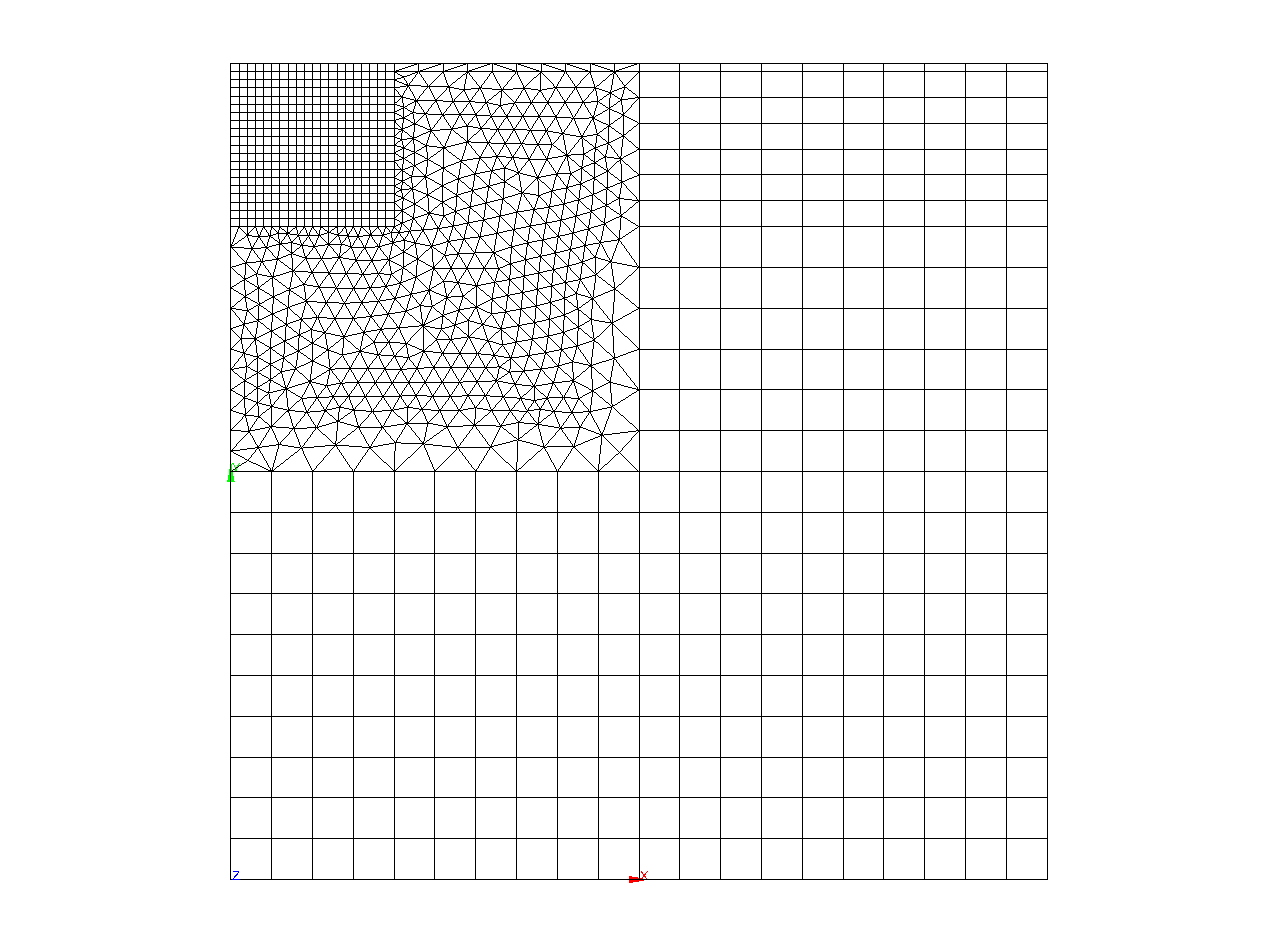2. Modeling A#
2.1. Characteristics of modeling#
Modeling A is*bidimensional* and*static nonlinear*. The calculation is carried out using pure mechanics, without hydromechanical coupling (equivalent to a perfectly drained soil).
We can first verify the coherence of the initial state (in particular the boundary conditions with the pre-consolidation state of the soil): mechanical balance must be established when only gravity acts, so the state of the system must not change.
The elastoplastic behavior law used is that of Cam-Clay, cf. [R7.01.14].
The vertical displacement is imposed on the GROUP_MA = “APPUI” representing the interface between the foundation and the ground, and varies between \(0.\) and \(–0.05m\) in 20 time steps between \(t\mathrm{=}0.s\) and \(t=1.0\phantom{\rule{2em}{0ex}}{10}^{+7}s\)

Figure 2: mesh of the shooting foundation for modeling A.
2.2. Tested sizes and results#
The solutions are calculated at points \(O\) and \(F\) and compared to FLAC references. They are first given in terms of equivalent stress \(Q\) as a function of the effective consolidation pressure \(P’\), and summarized in the following tables:
\(P\text{'}=\frac{1}{3}\mathrm{.}\mathit{trace}(\mathrm{\sigma }\text{'})\); \(Q=\sqrt{\frac{3}{2}\mathrm{s}\mathrm{:}\mathrm{s}}\) (where \(\mathrm{s}=\mathrm{\sigma }\text{'}-P\text{'}\mathrm{.}\mathrm{Id}\))
At point \(O\), under the foundation in the center:
\(P’\) [\(\mathit{Pa}\)] |
\(Q\) Code_Aster [\(\mathit{Pa}\)] |
\(Q\) FLAC [\(\mathit{Pa}\)] |
relative error |
102000 |
434 |
450 |
|
110000 |
19662 |
20000 |
|
120000 |
25837 |
26060 |
|
130000 |
29290 |
29490 |
|
146000 |
34006 |
34040 |
|
At point \(F\):
\(P’\) [\(\mathit{Pa}\)] |
\(Q\) Code_Aster [\(\mathit{Pa}\)] |
\(Q\) FLAC [\(\mathit{Pa}\)] |
relative error |
101900 |
227 |
76 |
|
100000 |
4945 |
4950 |
|
98000 |
9941 |
10420 |
|
96000 |
15283 |
16830 |
|
94000 |
20036 |
21870 |
|
The resultant of the forces exerted on the foundation as a function of its sinking is then calculated. This is also compared to the solution given by FLAC:
\(\mathit{UY}\) [\(m\)] |
Code_Aster [\(N/m\)] |
FLAC [\(N/m\)] |
relative error |
-0.005 |
-110105 |
-108500 |
|
-0.02 |
-129224 |
-125800 |
|
-0.04 |
-149470 |
-144600 |
|
-0.06 |
-167066 |
-160900 |
|
-0.0875 |
-188825 |
-181100 |
|